Level 1 Online Training
with Terry Real
An Online Training about the Relational Life Model Including Recorded Calls With Terry Real To Help You Build Trust, Find Leverage & Get Faster Results.
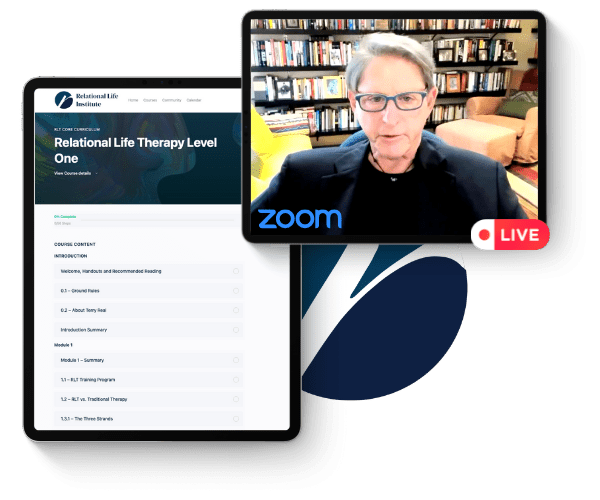

Brought to you by Terry Real, as seen on:
A Note From Terry
Connection has never felt more precious or critical. We have never wanted more from our relationships, not just our romantic relationships but friends, family, and children. At no time in history has it been more clear that intimacy is life’s grail.
Yet divorce attorneys have never been busier. Perhaps this is because we all have lived in an anti-relational, addictive, narcissistic culture that may give lip service to the importance of relationships but has not taught us the skills to realize them.
As therapists, we can fill in those gaps. There is a world of relational technology that can be taught and mastered once we open to the need for it. We can give our clients those tools. This is the basis of Relational Life Therapy (RLT)—my life’s work.
Developing my approach has been a thirty-year project. When I first got into the reality of practice, the couples who came to me were suffering, and the tools I had were inadequate for the task. So I made it my mission to figure out a way to bring relief, healing, and change to my clients.
After teaching RLT workshops all over the U.S., I created this online course to make the material available to more people. I designed RLT Level 1 to give you an in-depth introduction to the theory and practice of the RLT model. It is also the first step toward RLT certification and will prepare you for the Level 2 & 3 trainings.
I have seen this model help thousands of therapists get faster and more effective results for their clients. In the kinds of cases I see, it can be quite detrimental to let therapy drag on. RLT allows you to go deep and understand the negative patterns in the relationship quickly to help clients make rapid and substantive changes.
I will give you the fruit of my life’s work in this training. You will also get over 6 hours of pre-recorded video training from myself and RLT-certified therapist Shane Birkel and a wealth of practical case studies and demos designed to help you become a better, more confident therapist.
I encourage you to join me in this special program.
I look forward to seeing you on the inside and to working with you.
Warmly,


Terry
P.S. I’ve put my heart into the Level 1 training we are about to start together—to make it exactly the training I wish I could have gotten myself. As you get deeper into it, you’ll see that there are many refinements and subtleties to the RLT model.
“Family dysfunction rolls down from generation to generation, like a fire in the woods, taking down everything in its path until one person in one generation has the courage to turn and face the flames. That person brings peace to their ancestors and spares the children that follow.”



— Terry Real
9 Ways RLT is Different From Traditional Therapy


1. ONE-UP & ONE-DOWN
Traditional psychodynamic therapy focuses primarily on healing shame–helping people come up from feeling “one-down,” or inferior. RLT is just as concerned with shame’s cousin grandiosity. We help people come to level ground, neither “one-up” and superior nor one-down.


2. TAKING SIDES FOR BALANCE
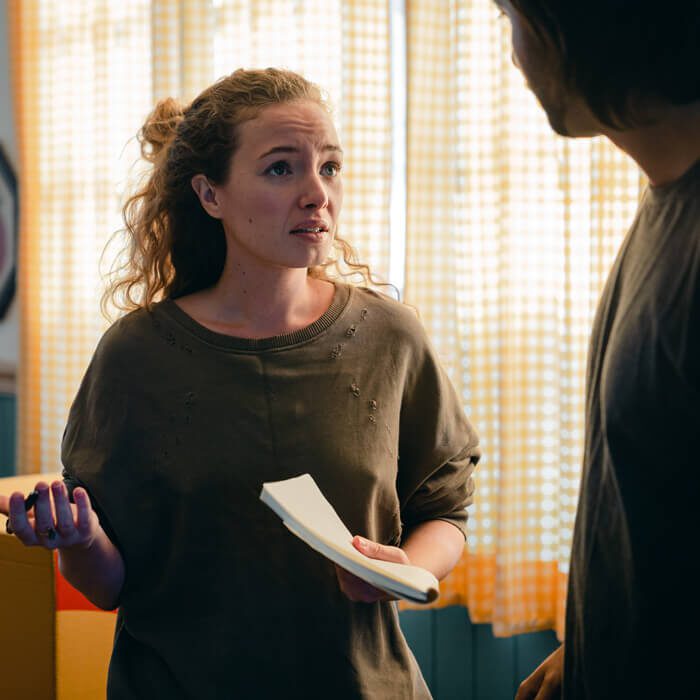

3. BEING DIRECTIVE


4. A FOCUS ON CREATING SWIFT AND PERMANENT CHANGE


5. INDIVIDUAL WORK IN THE PRESENCE OF THE PARTNER


6. THERAPIST AS FELLOW-TRAVELER


7. IT’S ABOUT SUBJECTIVE REALITY


8. TEACHING RELATIONAL LIVING


9. MEETING AT A SHARED CONNECTION POINT
A tip: “Don’t get out ahead of your client. They’re the ones to assert the leverage, not you. You go too far when you act as if you have more leverage than you have. You go too far if you take on the offender of the blatant, rather than have the latent take on the blatant, generally.”



— Terry Real
Introducing…
RELATIONAL LIFE THERAPY
Online Level One Training









In 6 modules of recordings of our training, you will learn all of the core foundation material that is the basis of the Relational Life Therapy model:
- Introduction to Relational Life Therapy
- Relational Mindfulness
- Data Gathering and Seven Lenses 1-4
- Data Gathering and Seven Lenses 5-7
- Finding Leverage
- Reconnecting









These sessions explore the material in-depth and answer questions you may have by learning from the students who’ve experienced this training before you. The students are invariably bright, sincere, committed, and challenging, and Terry learns as much as you do from the work together.









THE CALLS AND RECORDINGS
Along with transcripts and summaries of all the course training videos, you will also have access to transcripts and downloads of the call recordings.









You’ll receive access to our private membership site, the RLT Community Hub, where you can work through the pre-recorded elements and build connections with the faculty and your fellow students.
PLUS, You’ll Receive These Special Limited Bonuses:









In this teaching, Terry Real addresses in a very practical way, what you can do RIGHT NOW to make relationships work in your own life. In today’s relationships, we want to become life-long lovers, but we simply don’t have the skills or tools to realize this dream.









- The first question: What kind of infidelity and why?
- To what degree is it primarily the involved partner’s character issues?
- To what degree is it primarily a reaction to the relationship?
- What about sex addiction?
- The goals of treatment – changing the relationship by changing the character of the partners within it.
- The therapeutic use of self – holding the disparate parts.
- The very different experience and interactions of the key players.
- How to diagnose the relationship itself.
- The healing process/levels of healing.
- Critical elements of rebuilding.
- Different reasons for infidelity.
- Types of infidelities.
Here’s what you’ll learn inside
RELATIONAL LIFE THERAPY
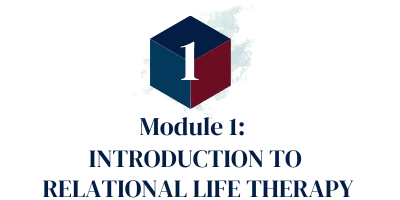

The differences between RLT and traditional psychodynamic therapy are explored. Also considered are the stances of “one-down shame” and “one-up grandiosity” in couples; according to RLT, true intimacy can only happen when partners are “same-as” with each other. RLT is about action and swift results, helping people to make major changes to the negative parts of their character, and the critical role and stance of the therapist is described. Presented also are the concepts of Joining Through the Truth and psychological patriarchy.
In this module, you will learn:
- The RLT phases, and how RLT differs from traditional therapy
- To understand the RLT view of power imbalances in couples, of psychological patriarchy, and how these are addressed through therapy
- To describe the role and approach of the therapist in RLT
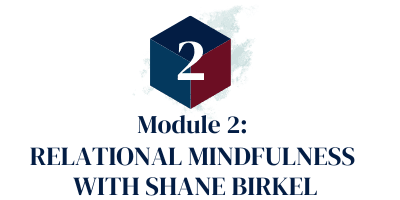

The core practice of Relational Mindfulness is explained. In essence it is about being conscious of the “whoosh” of being swept away by our habitual responses (known in RLT as the “first consciousness”) as it happens, and applying the skills of stop, breathe, think (or the “second consciousness”) to whatever the situation is. Also explored are the three parts of the psyche (the Functional Adult, Adaptive Child, and Wounded Child) according to RLT.
In this module, you will learn to:
- Understand the practice of Relational Mindfulness
- Explain the “fight, flight, or fix” responses to the “whoosh” of the first consciousness
- Understand the functions of the three aspects of the psyche
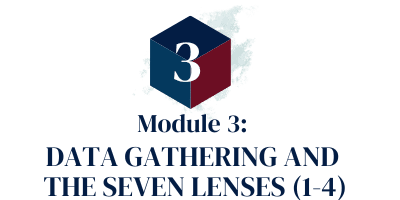

The reasons why, in RLT, data must be gathered as a first stage of therapy. Also laid out are the seven diagnostic lenses of RLT, and the first four explored in depth.
In this module, you will learn to:
- List the seven lenses
- Explain the role of data gathering
- Understand how preconditions are addressed in RLT
- Differentiate the various losing strategies clients employ
- Explain the difference between blatant and latent stances
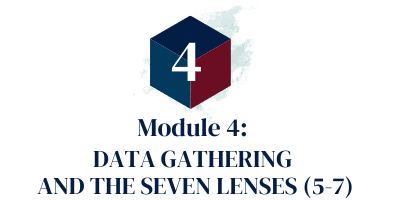

The “stance, stance, dance” dynamic is explained, tools are given to describe each partner’s pattern and the dance that results, and the goal of therapy in working with this entire dynamic expressed. Losing strategies are revisited, and the “relational grid” diagnostic tool is laid out, as are descriptions of the two kinds of boundaries. The three major family of origin roles are discussed, and advice is given on how to work with grandiose women as well as grandiose men.
In this module, you will learn to:
- Understand “stance, stance, dance”
- Explain the relational grid and track losing strategies against it
- Explain the two kinds of boundaries
- Understand the major family of origin roles and how they play with stances
- Understand effective approaches to working with grandiose women as well as grandiose men
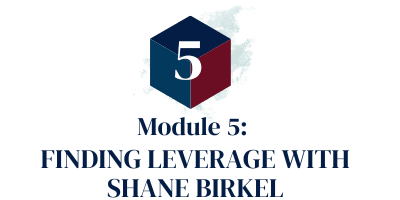

This module moves from diagnosis to treatment. Some common therapeutic mistakes are described, as are the two kinds of grandiosity and the differences between grandiosity and shame. The concept of leverage–what it is, why it’s necessary, and how it can be used—is explored. Advice is given on empowering latent people, and the concept of the “relational champion” is presented.
In this module, you will learn:
- Understand some common therapeutic mistakes
- Describe the kinds of grandiosity, and contrast it to shame
- Understand the concept of leverage and how to use it
- Describe strategies for latent people
- Understand that RLT requires that the latent person be a “relational champion” in therapy
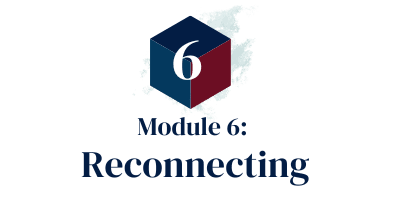

Methods for “reconnecting’—for using leverage to make patterns apparent and for engaging clients in the therapy—are explored. The different roles of the therapist are presented, and the heroic nature of the RLT work is described: how it is a heroic act for clients to face multi-generational dysfunction and, for the benefit of future generations, put an end to it.
In this module, you will learn to:
- Understand the concept of “reconnecting”
- Recognize three therapeutic roles
- Appreciate the heroism of RLT work
“Terry helps reawaken couples who seem trapped in a long-term stalemate
and allows them to move toward growth and fuller Selfhood.”


— Richard Schwartz
The Shift from Individualistic to Relational Thinking


“He won’t listen!” cries Lucy, flinging open her arms, as she sits on the edge of the couch, as if to implore me.
“I don’t get her,” says Stan, sinking his face in his hands, beleaguered, exhausted, as if to say, “No matter what I do…”
And then there’s me, watching, listening. Couples on the brink fly in to see me. Together we spend one or two full days working, at the end of which time we agree that you’re either back on track or divorcing. One way or another, this is the last stop. Lucy and Stan are on the edge of dissolution, have been for over a year. This past weekend was a disaster.
“So, what happened?” I ask.
Stan snorts. “This whole thing is ridiculous,” he declares, one leg pumping, impatient, annoyed.
Lucy cuts him off, taking charge. “We took two cars, for a weekend alone at our house on the Cape. Both were loaded with groceries. So, I can’t see out the back. Already I’m nervous. I don’t like driving at night. I ask Stan to stay by me, in case I… I don’t know, get lost, take a wrong turn, whatever.”
“She wanted me to keep an eye on her,” Stan tells me, wanting to hurry the story along. “Which I did.”
“Which you didn’t!” says Lucy.
“Which is exactly what I did. Look,” Stan turns to me, the arbiter. “I was winding my way through the traffic. I’m about two cars up ahead of her…”
“But I can’t see him,” Lucy interjects.
“I’ve got her square in my rearview mirror.” I look at Stan’s harried expression. I’m already sensing where this going. “She calls me, panicked, out of her mind. ‘You said you wouldn’t leave me!’ Already, she’s like screaming at me.”
“But you left me! After you said…”
“Okay,” I interrupt. “I think I’ve got it.” Stan and Lucy were caught in a typical who’s right / who’s wrong battle – hinging on their slightly different definitions of what it meant to “be there for” Lucy. To Lucy, “being there” meant being right by her side. For Stan, it meant keeping an eye on her. Who was objectively right?
That’s a trick question. In marital relationships it’s never a matter of landing on the one true reality, but rather two people in need of negotiating differing subjective realities.
Between the two, I sided with Lucy – a difference between RLT and other therapies. We take sides. Stan was factually correct but relationally incorrect. Was he, as promised, looking after Lucy to make sure she was alright? Yes, absolutely. And if Stan had been the one to make the request, he would have been fine. But Stan wasn’t married to Stan. Lucy wanted the comfort of Stan by her side, in sight of her. It wasn’t his aid she was after, but the reassurance of his company. In this instance – as in so many others just like it, Lucy assured me, Stan didn’t “get it.” He missed the point because he wasn’t thinking relationally.
Even though on the brink of divorce, Stan wasn’t a bad guy. What he argued so vehemently for, the point he got so defensive about was, in fact right – in the linear, individualistic, Newtonian world we all live in. But I have a saying, “You can be right, or you can be married. What’s more important to you?”
I turn to Stan: “In this moment, right now, ask yourself, would you rather make the case that you’re right or would you rather make peace with your wife and help her feel better?”
“Meaning?” he says, tentative but listening.
“Turn to your wife right now and tell her something from the heart,” I coach him.
And, bless him, with a little encouragement, he tries it.
“Lucy,” he takes her hand. “I’m sorry, okay? I’m sorry if you felt so abandoned that day.”
“And you’re sorry you didn’t hear her,” I add.
“I am,” he says. “Really. No BS. I wish I could have listened better.” Stan looks at his wife’s tearful face.
“I’ve been waiting for this moment for years,” she says, crying, her body straining toward him.
“Wanna hug from the guy?” I ask her and she lurches forward, reaching for him.
“Take your time,” I tell them, as Stan rocks her gently. “Take all the time you need.”
Stan’s well-meaning but misguided loyalty to “sorting things out,” that is, determining the one right reality about it, deprived them both of moments like the one they had now in my office. Moments of repair. When Stan stopped defending himself and instead tended to his wife’s bruised feelings, she felt heard, the chasm between them was bridged, and everyone could breathe again.
About Terry Real


Terry Real is the creator of Relational Life Therapy, the revolutionary approach to relationship therapy. An internationally recognized family therapist, speaker, teacher, and best-selling author, Terry founded the Relational Life Institute, offering workshops for couples, individuals, and parents around the country along with a professional training program for clinicians wanting to learn his RLT methodology. Drawing on three decades of experience, Terry knows how to lead couples on a step-by-step journey to greater intimacy—and greater personal fulfillment.
A senior faculty member of the Family Institute of Cambridge in Massachusetts and a retired Clinical Fellow of the Meadows Institute in Arizona, Terry has worked with thousands of individuals, couples, and fellow therapists. Terry’s ideas on men’s issues and couple’s therapy have been celebrated in venues from Good Morning America, The Today Show, and 20/20 to Oprah and The New York Times.
About Shane Birkel


Shane Birkel is a Licensed Marriage and Family Therapist in private practice and works primarily with couples. He is a certified Relational Life Therapist.
Shane hosts a weekly podcast called the Couples Therapist Couch that is all about the practice of Couples Therapy. He has also created the Couple Therapist Inner Circle which is a membership that provides community, education, and personal support for Couples Therapists.
He regularly creates videos about relationships for his followers on Tiktok and Instagram.
Relational Life Therapy Level One Training


6 hours of Training Videos [VALUE: $600]
Five Recorded Q&A Training Calls [VALUE: $500]
Transcripts and Audio
Downloads of ALL the calls and video recordings [VALUE: $215]
Private Membership Site with Easy Access to All Training Materials and Bonuses [VALUE: priceless]
Plus, these Bonuses:
Bonus #1 – Making Love Work Digital CD Set [VALUE: $40]
Bonus #2 – Working With Infidelity in Couples Therapy [VALUE $65]
How much does Level 1 cost?
Choose the single payment option or easy payment plan:
Single Payment
$497
3 Easy Payments Of
$187


I’m confident you’ll be happy with the Relational Life Therapy Online Training. However, if you are not 100% satisfied with your purchase, simply contact us at support@terryreal.com within 14 days of your purchase, and we’ll give you a full refund, no questions asked.
Testimonials
Testimonials


“Terry Real helps overturn old-fashioned, confining roles and opens up a treasury of hope for lasting and exciting intimacy for couples everywhere.”
— Edward Hallowell, M.D., author of Crazy Busy
“Terry’s work provided foundations of “telling the truth” to clients. I did it easily with individuals but stumbled with couples. Now I LOVE working with couples. It is now always profoundly moving & instructive.”
— Jeanne O.
“Some of the things I love about Terry Real and his work are the practical steps, down-to-earth guidance and his model of having the courage and respect to be honest with couples when one partner is behaving in a way that needs to be addressed first.”
— Rachel M.
“Terry, you are an absolute gift to the the mental health community. “
— David Feder, MSW, RSW, CSAT, Close Connections, Toronto, Ontario, Canada
“Before learning Terry Real’s model I’d work with couples to problem-solve their dilemmas of the day. I always had misgivings about the long-term potential of my work because I didn’t know how to move in deeper to address with them their relational processes. Now, having Terry’s model for teaching clients healthy relating, I have guidelines to help them perform the modest miracle of personal transformation on a permanent level. “
— R.D.
“You have lots of ideas that are very useful with couple work – particularly with the male client. I love your stuff about gender discourses and boundaries, asking clearly for what you need from your partner.”
— Claire O
